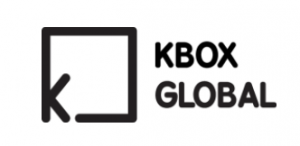Most restaurant and commercial kitchens, be it in hotels, pubs, gyms, catering kitchens or supermarkets, are underutilised. The model is outdated. One very expensive location with one brand that cannot evolve as food trends change. The result is ambitious and successful food providers not being able to capitalise on the soaring delivery market. So, we’ve fixed this.
On the demand side, we’ve created a multi-cuisine range of delivery focused food brands, so kitchens can serve more local people, more easily, with the ability to adapt swiftly to demand flux and taste changes. And on the supply side, our tech platform digitises kitchen operations to make them efficient.
But what makes KBox special is our AI and machine learning technology that enables advanced analytics. We help kitchens find the right set of food brands for their local market, and then we future proof them by keeping them current, through a sophisticated mix of data evaluation. Using our AI, we can forecast demand for each kitchen, which in turn minimises waste, improves staff utilisation, and morale, and thus improves the profitability of each host kitchen.
The result is kitchens are busy and profitable; local consumers have access to what they fancy; and food entrepreneurs get to expand without enormous up-front investment in bricks and mortar.
We’re using advanced technology to shake up the traditional economic model, for everyone’s benefit, and I’m really proud of it.

How did you come up with the idea for the company?
Food has always been where my passion and skills nearly align. I learnt so much from my time advising, strategising and then investing in and operating brands created by other smart and passionate entrepreneurs. This enabled me to spot trends before others saw them and in turn gave me the confidence to create my own brand, Absurd Bird, six years ago. While we were growing Absurd Bird, delivery was heating up and I pivoted swiftly as casual dining changed tack.
I could see that one brand in one location wasn’t going to cut it for the delivery market. I recognised that static bricks and mortar wasn’t necessary to be successful, but that building more remote kitchens also wasn’t required, when so many commercial kitchens are underused. Firing up existing kitchens was the answer, and KBox was born.
More from Interviews
- Meet Roman Eloshvili, Founder of ComplyControl
- Inside Mobile Payments with Bojoko’s Ville Saari
- Meet Steve Haskew, Group Director of Sustainability and Growth At Circular Computing
- A Chat with Hakob Astabatsyan, CEO and Co-Founder of Synthflow AI
- Meet Ernesto Suarez, CEO at Travel Insurance Provider: Gigasure
- Under Pressure and On the Clock: Gurhan Kiziloz’s Nexus International to Hit $1.45B Revenue in 2025
- Daisy Ip of InvestHK: Why Hong Kong Continues To Grow In Popularity Amongst UK Fintech Startups
- A Chat with AJ Balance, Chief Product Officer at Grindr
What advice would you give to other aspiring female entrepreneurs?
I’d give the same advise to anyone who knows in their gut that they have a fantastic business idea – there are no failed companies only failed leaders. I came to create KBox because my business wasn’t in the place I’d hoped, and the casual dining sector was on shifting sands. Absurd Bird could have been another restaurant failure as a result of market conditions, but I refused to give up, and I refused to allow those that had backed me to be let down – I fought hard to reinvent it, learned a lot about myself, my leadership style and my approach to business as a result. Believe in yourself, work hard, and as long as you’re true to your principles and beliefs, you are a success.
What can we hope to see from Kbox in the future?
We are only just beginning. If we can enable tens of thousands of kitchens around the world to run at an optimal level of efficiency, with zero wastage, giving them the agility to stay profitable as trends evolve then we will be in a position to transition them to healthier, greener more sustainable food offerings. Our model is collaborative – it’s a win-win for all parties involved. What can be better than that?



